Food Studies News
Bee Orange
In their first year on campus, the bees harvested enough nectar from campus plants and trees to create over 300 pounds of honey. The honey is harvested twice a year and has been bottled for sale on campus. A small initial offering of campus honey in early 2021 proved immensely popular, with the honey quickly selling out across campus.
In the next few weeks, University community members will be able to purchase the honey in the Campus Store in the Schine Student Center, as well as in campus convenience stores.
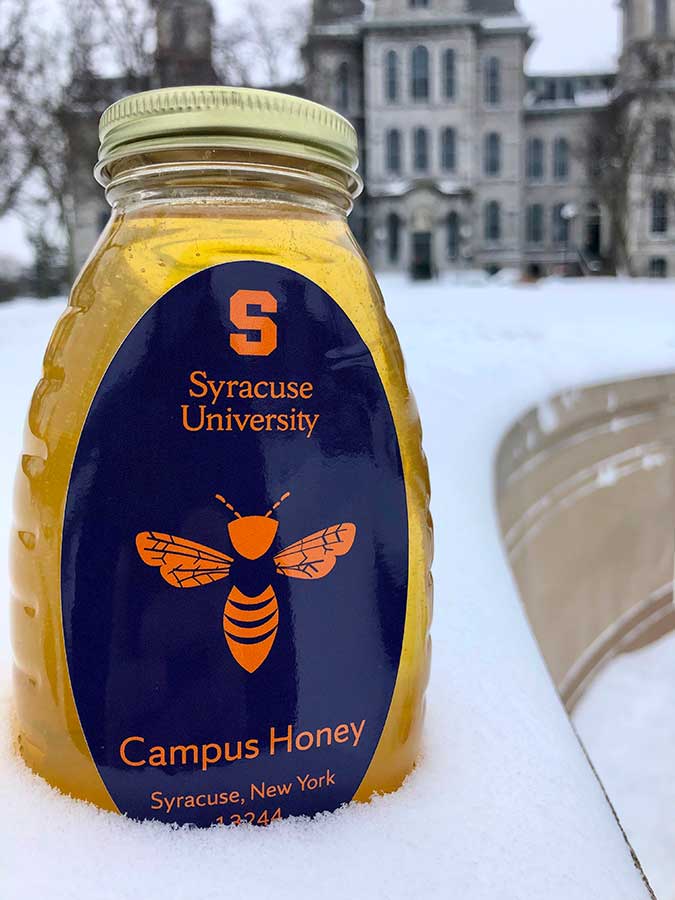 The product for sale is raw honey, meaning it is not processed and contains only one ingredient: honey. Raw honey retains beneficial nutrients, pollen and antioxidants that processed honey does not. The honey has a distinctive Syracuse University flavor due to the unique plants in the area of the hives. A jar of honey costs $12, with all proceeds of its sale going back to support the honeybee hives overseen by Sustainability Management.
The product for sale is raw honey, meaning it is not processed and contains only one ingredient: honey. Raw honey retains beneficial nutrients, pollen and antioxidants that processed honey does not. The honey has a distinctive Syracuse University flavor due to the unique plants in the area of the hives. A jar of honey costs $12, with all proceeds of its sale going back to support the honeybee hives overseen by Sustainability Management.
Currently, the University has 965 acres, of which 624 acres are green space, supplying bountiful habitats for pollinator species that encourage their critical existence. The establishment of honeybee hives in an area helps to support pollinator-dependent plants, including native plantings and agriculture-producing plants.
The campus hives are part of a Campus as a Lab for Sustainability (CALS) project run by Sustainability Management and awarded to associate teaching professors Lisa Olson-Gugerty and Mary Kiernan of Falk College. Their proposal, titled “Bee Orange,” coincided with the aim of the CALS grant, which strives to seamlessly integrate the academic and research mission of Syracuse University within the facilities and operations of the campus. “Bee Orange” supports the University’s efforts as a Bee Campus USA affiliate, including boundless opportunities for research around the honeybees and pollinator plant species, no matter the area of expertise of faculty and students.
To learn more about the University’s sustainability efforts and to become involved with these initiatives, visit the Sustainability Management website.
Read a related article about the bees in the Daily Orange.
A Syracuse University News story by Jennifer Horvath originally published on Tuesday, August 10, 2021.
Welcome Class of 2025!
Falk College welcomes the Class of 2025, a talented group from 37 states and 33 global countries. The Class of 2025 includes 373 first-year students, 13 transfer students, 163 new graduate students, and 156 new online graduate students. Fall 2021 Syracuse Welcome is scheduled for Aug. 26-29, 2021, with new student move-in beginning Tuesday, Aug. 24, 2021. The entire welcome week schedule for new students can be found by visiting the Syracuse Welcome website.
Falk College Syracuse Welcome Events:
Building a Food System ‘Rooted in Social Justice and Equality’
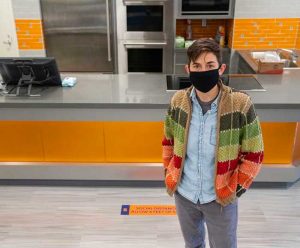
Nel Gaudé, who was completing a master’s in food studies from Falk College, was working in the kitchens at Falk in March 2020 when the COVID-19 pandemic hit. Weissman, an associate professor of food studies and nutrition in Falk, started looking for ways for Gaudé and other students who lost their jobs to make extra money.
At the same time, Weissman was in conversations with the Lender Center for Social Justice at Syracuse University to create a 2020-22 Lender Center for Social Justice Fellowship for students who would help organizations such as SOFSA determine how food systems in Syracuse could better meet the needs of the community.
So Weissman introduced Gaudé to Maura Ackerman, SOFSA’s facilitator, and they discussed a summer internship for Gaudé, who would support SOFSA activities and build a bridge to the work that would be done by students during their two-year fellowship.
That conversation was the last time Gaudé and Ackerman would see Weissman, who died unexpectedly in April 2020.
“He remains the connective tissue,” Ackerman says. “Going through the process of grieving and mourning Evan’s loss really galvanized all of the folks involved in SOFSA to continue this work as part of his legacy.”
Jonnell Robinson, Weissman’s close friend and an associate professor of geography and the environment in the Maxwell School of Citizenship and Public Affairs, was selected by the Lender Center to replace Weissman as the 2020-22 Lender Center Faculty Fellow. Following the lead of her friend, Robinson asked the Lender Center for a grant that would pay Gaudé a stipend for their work with SOFSA last summer, and the Lender Center graciously agreed.
“The last time I met with Evan was the first time that I met with Maura, and he connected us and that was the last time I saw him before he passed,” Gaudé says. “Jonnell and Maura, both knowing Evan better than I, knew his concern for his students and his dedication to supporting us, not just in the classroom but in life.”
Last summer and into the fall, Gaudé laid the groundwork for the creation of SOFSA bylaws that were passed in June and will serve as a “guiding document for the organization,” Robinson says.
“So many organizations right now are doing a lot of reflection and trying to undo some of those systems of inequality that have built up,” Robinson says. “This did present us a unique opportunity to think about these issues on the front end and build an organization that was paying attention to this kind of thing right out of the gate.
“This is what Evan had laid out and was really interested to see happen,” Robinson says. “His major vision was that we didn’t just develop a food policy council, but that we developed a food policy council that was rooted in social justice and equality.”
Giving a Microphone to Those With Food Insecurity
With Weissman as one of its founding members, SOFSA was formed in early 2019 and the organization developed this mission statement:
Our mission is to strengthen our food system so that it works for all people in Syracuse and Onondaga County. We bring communities together to foster relationships, develop projects, align resources, and advocate for policies to improve the health of our neighbors and our environment.
But how to get there? That’s where Gaudé–and the Lender Center student fellows–played prominent roles. Gaudé spent several months researching and reviewing bylaws of other food policy councils and looked more broadly at the idea of creating an accompanying document that would outline the organization’s justice and equity principles.
“Nel took on, with gusto, a national scan of what food policy councils use for their bylaws and led us through developing bylaws that were adapted for our local context,” Ackerman says. “We named a committee that worked through the process to make sure that our bylaws fit our ways of operating and our culture and how best to include what we want for our community.”
Gaudé, who points out that it required “many minds, eyes and hearts” to create the bylaws, says the committee’s main goal was to ensure that SOFSA was following its mission and giving voices to the experiences of people who are marginalized throughout the food system.
“People who have lived with food insecurity or are daily victims of racial discrimination, these people know this situation better than anyone else and that wisdom needs to be acknowledged,” Gaudé says. “They need to have the microphone. They need to be telling us what they need and it’s our job to try to do what we can to support them.”
Led by SOFSA project coordinator Steve Ali, SOFSA created a diversity, equity, inclusion and accountability committee that includes Lender Center Fellows Avalon Gupta VerWiebe and Nicky Kim ’24. VerWiebe and Kim helped create an equity and justice statement that’s included in Article II of the bylaws.
“I think that there was a lot of momentum last year to have conversations about this and creating an organization like SOFSA from the ground up that is designed to be a community-wide initiative gave us a perfect opportunity to incorporate anti-racist activities from the very beginning,” says VerWiebe, a second-year food studies master’s candidate in the Falk College. “This opportunity to bring together Native American, Black, white, Latine, rural and city populations in one space to talk about how to affect change in the food system is extremely special and exciting to me.”
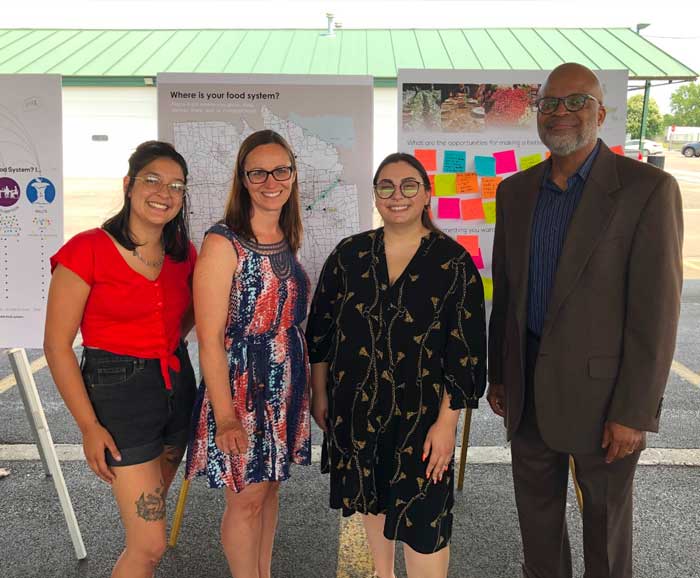
Fellows Carry on Weissman’s Vision
The next step for all the stakeholders is to put the vision of the bylaws into practice.
This past April, the six Lender Center Fellows, Robinson, the SOFSA board members and representatives from 15 food system organizations in Onondaga County participated in a training hosted by Soul Fire Farm. Soul Fire, according to its website, is “an Afro-Indigenous centered community farm committed to uprooting racism and seeding sovereignty in the food system.”
The training, Robinson says, helped SOFSA and the food system organizations understand where they stand in terms of engaging in anti-racist activities and that helped set the agenda for the new diversity, equity, inclusion and accountability committee.
“What does the history of inequality in the food system look like?” Robinson asks. “The Soul Fire Farm training did an amazing historical overview to show that there are deep chasms in equality. How, as an organization, do we change that course?”
To that end, the Lender Center Fellows have been participating in new SOFSA initiatives such as the “Chop, Chat, Chill” event that creates a welcoming space to people of color and others who have been excluded from various food planning initiatives; and a Political Coffee Hour event that enabled those from across the food system to meet with local policymakers.
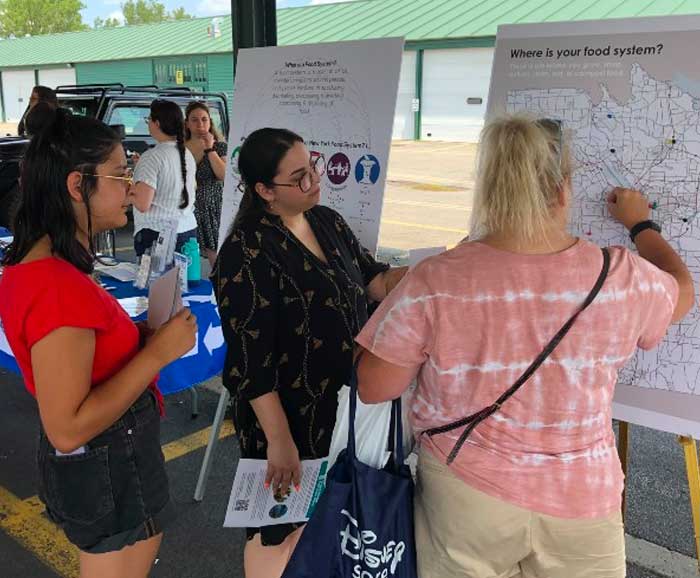
On July 14, VerWiebe and Lender Center Fellow Taylor Krzeminski, a second-year graduate student, joined Robinson at the launch event for FoodPlanCNY, an initiative imagined by Weissman and Matt Potteiger to improve the health of residents through access to healthier food (Potteiger is a landscape architecture professor at the SUNY College of Environmental Science and Forestry). VerWiebe and Krzeminski led activities asking visitors for their thoughts on how to improve the local food system.
“We’re with the Lender Center for Social Justice, so for us fellows working with SOFSA it’s a wonderful opportunity to engage with an organization in the community that’s trying to establish itself as a social justice-based organization,” VerWiebe says. “SOFSA down the line won’t just be about policy, it’ll be about creating and transforming our community and creating spaces for change, accountability and justice.”
In addition to their work on the bylaws and with the diversity, equity, inclusion and accountability committee, the Lender Center Fellows are supporting SOFSA’s efforts to develop relationships with marginalized communities and learn more about their food stories so SOFSA can focus on projects that acknowledge the communities’ struggles and elevate their causes.
“There’s a particular energy that comes with the framing of this Lender project that Evan left us,” Ackerman says. “That’s his legacy that Jonnell is really committed to–and that the Lender (students) are just incredible advocates for—and they really seem to embody that energy, that vision and the drive to do this life-changing work.”
A Syracuse University News story by Matt Michael originally published on Friday, July 23, 2021.
Food Studies Newsletter
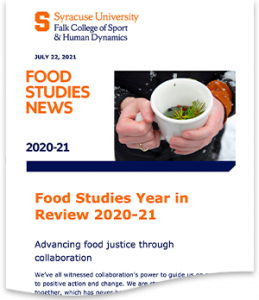 The food studies program in Falk College has just released this year’s newsletter. Food studies, a rapidly growing field of study and practice, encompasses food delivery systems, social stability, human rights, public health, human and landscape sustainability, and urban/regional design and planning. Click on the link below to read about interdisciplinary research and scholarship, student accomplishments, and more happening in food studies at Syracuse University.
The food studies program in Falk College has just released this year’s newsletter. Food studies, a rapidly growing field of study and practice, encompasses food delivery systems, social stability, human rights, public health, human and landscape sustainability, and urban/regional design and planning. Click on the link below to read about interdisciplinary research and scholarship, student accomplishments, and more happening in food studies at Syracuse University.
Alumna receives Fullbright to study global food cultures
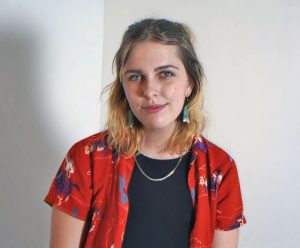
Vivian Whitney, a 2021 graduate with a bachelor in magazine, news and digital journalism from the Newhouse School with minors in food studies in the Falk College and French and francophone studies in the College of Arts and Sciences, is one of four Syracuse University students/alumni to receive 2021 Fulbright U.S. Student Program awards.
Whitney has received the Fulbright/Casten Family Foundation Award to attend the University of Gastronomic Sciences in Pollenzo, Italy, in their Master of Gastronomy: World Food Cultures and Mobility program. The program starts in October and comprises 10 months of actual school-lectures, workshops, tastings and fieldwork-and three study trips-one in Italy, one in Europe and one outside of Europe (COVID restrictions-permitting). The program concludes with a 14-week internship or final research project conducted in Italy. Whitney’s specific master is focused on different world food cultures and systems and how they move and change, with a focus on sustainability and food sovereignty.
Whitney, who has a degree in magazine journalism, aspires to be a food writer. “I’m incredibly interested in food cultures and the when, where, why and how we eat food, especially as it relates to food justice and food sovereignty. I want to, in some capacity, share stories that will help build a better, more sustainable, equal, fair, just, compassionate, delicious food system from production to consumption,” she says. “I have the storytelling experience from Newhouse, but this program will help inform any food writing I do and give me a more global perspective of food, which will, in turn, help my understanding of food culture and systems in the United States.”
“I just love food and all our connections to it, and I want to share those stories,” she says.
Four Syracuse Students/Alumni Named as 2021 Fulbright Recipients | Syracuse University News
Falk College Welcomes New Academic Department Chairs 2021-22
As preparations continue for the start of the 2021-22 academic year, Falk College welcomes two new academic department chairs.
- Dyane Watson, Chair, Department of Marriage and Family Therapy
Dyane Watson, Professor of Practice, began her service as Chair of the Department of Marriage and Family Therapy in July 2021. Her areas of research include the adult couple relationship, the influence of marginalization and oppression on couple and family relationships, therapeutic outcomes for children and families, mental health training and service delivery for veterans and military families, and training program evaluation for mental health professionals.
Falk College thanks Thom deLara, Professor of Practice, who served in this role since 2007. During his time as Chair of the Department of Marriage and Family Therapy, he oversaw the expansion of the department and reengineered the curriculum to specifically meet the needs of children, and of those suffering from trauma across the life cycle. In addition, under his direction the department committed itself to educating students, and mental health practitioners, about trauma-informed care as an integral part of evidenced-based clinical practice. In recent years, his curriculum priorities included the development of a nationally recognized clinical program for educating and training mental health providers to work with veterans and military families and the development and implementation of Falk College’s online Marriage and Family Therapy M.A. degree program.
- Lynn Brann, Chair, Department of Nutrition and Food Studies
Lynn Brann, Associate Professor, will begin her service as Chair of the Department of Nutrition and Food Studies in January 2022. Her research interests include the examination of dietary intake and diet quality of children and adolescents related to growth, development, and health, as well as mindful eating to improve self-regulation in children. She is involved in a research collaboration with a colleague in Public Health examining the environmental toxicants, race, and cardiovascular disease risk in children.
Falk College thanks Rick Welsh, Falk Family Endowed Professor, who has served in this role since 2014 and will conclude his service in December 2021. During his time as Chair, food studies, nutrition science and dietetics programs experienced growth and continuation of excellence in research and internships, as well as a range of study abroad experiences. Food studies curriculum development maintained the program’s focus on social, cultural, political, economic, and environmental dimensions of the global food system. Nutrition curriculum elevated nutrition’s integral connections to public health, medicine, and policy. Under Welsh’s leadership, the two programs have continued to develop and strengthen interdisciplinary research and practice and prepare students to meet emerging trends in both professional fields.
Falk College department chairs continuing their service this year are:
- Keith DeRuisseau, Chair, Department of Exercise Science
- Eunjoo Jung, Chair, Department of Human Development and Family Science
- Lutchmie Narine, Chair, Department of Public Health
- Carrie Smith, Chair, School of Social Work
- Michael Veley, Chair, Department of Sport Management
For more information about Falk College academic programs, please visit Falk.syr.edu.
Falk College honors faculty excellence in teaching, research, service
Three faculty members from Falk College’s Departments of Nutrition and Food Studies and Public Health and the School of Social Work were honored for excellence in teaching, research, and service with 2021 Falk College Faculty of the Year Awards. The honorees, who are nominated by their peers for outstanding teaching, scholarship, and internal and professional service contributions, were recognized by the Falk Faculty Council with awards at the end of the Spring 2021 semester.
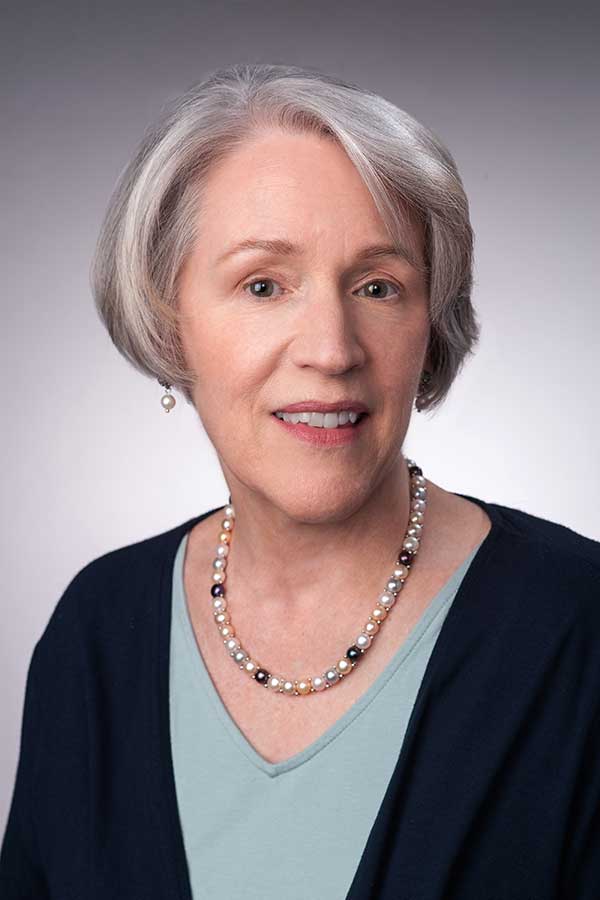
Kay Stearns Bruening
Dr. Stearns Bruening is an associate professor of Nutrition and Food Studies, and director of the Nutrition Assessment, Consultation and Education Center. She was honored with the Evan Weissman Memorial Faculty of the Year Award for Teaching Excellence. By attending numerous training sessions and mastering new technologies, she reworked courses to meet distanced and hybrid learning demands due to the pandemic. To provide formats that best met student learning needs and outcomes, she recorded 76 short lecture videos for the Medical Nutrition Therapy course she taught in the fall semester.
Professor Stearns Bruening is a leader in dietetics education and accreditation, sharing new ideas and pedagogical advances with colleagues regularly. She is an active community collaborator, including ongoing efforts with Upstate University Medical College where she co-taught a Food as Medicine Course, creatively delivering the culinary medicine cooking event and demonstration from her own home kitchen.
The inaugural Evan Weissman Memorial Award for Teaching Excellence honors the lifetime commitment of the late associate professor of food studies who engaged students in community-based work to advance social change. Professor Weissman received this same award for teaching excellence in 2016 in addition to numerous other teaching awards.

Xiafei Wang
Dr. Wang is an assistant professor in the School of Social Work. She received the Faculty of the Year Award for Excellence in Research. In 2020, she published seven peer-reviewed journal articles, submitted two book chapters and three articles, and presented two posters and one paper. One of her co-authored papers, “Measuring the predictability of life outcomes with a scientific mass collaboration,” was published in the Proceedings of the National Academy of Sciences of the United States of America. The research findings, which demonstrate her significant commitment to interdisciplinary collaboration, reveal the complexities of child development and encourage researchers to rethink computational predictions’ effectiveness. An active grant writer, Professor Wang received funding through several external grants. She is dedicated to mentoring students to embrace research, creating two undergraduate research positions through the SOURCE RA program. Thanks to her mentorship, the students secured $5,000 SOURCE grant funding.
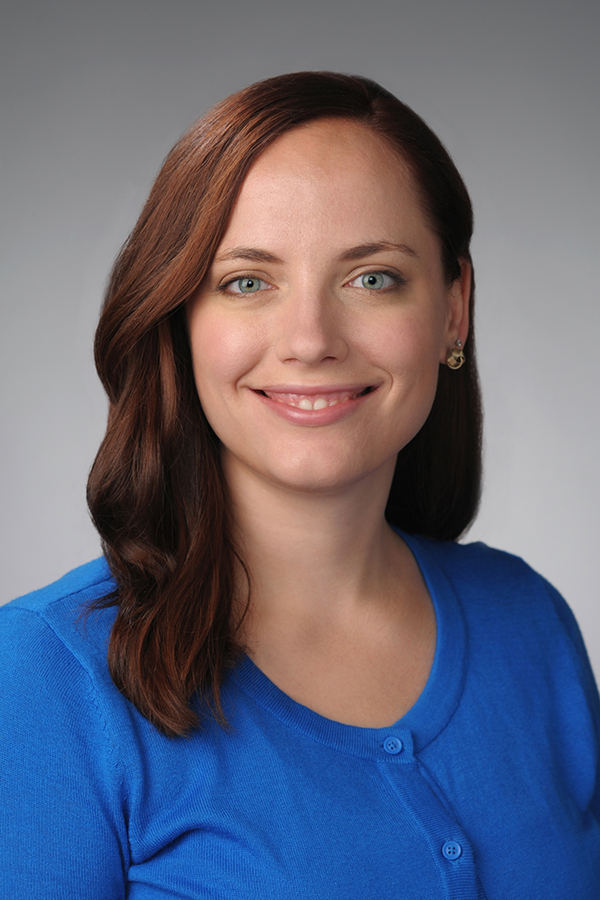
Brittany Kmush
Dr. Kmush is an assistant professor of Public Health. She received the Faculty of the Year Award for Excellence in Service. Since the start of the pandemic, she continues to apply her understanding of infectious disease epidemiology to benefit the Syracuse University pandemic response as a member of the Vice Chancellor’s Public Health Advisory Council. She coordinated the University’s mass testing efforts instrumental in the fall reopening plan, creating and overseeing the pooling lab with students and other volunteers. She oversaw the information and technology needs of the mass testing operations, working with colleagues from institutional research to ensure a data collection and test reporting system that followed students’ tests from collection, through pooling, and onto the result. An often-sought after expert for media interviews, Professor Kmush continues to be a source of insight into infectious disease dynamics, and strategies needed to undertake them.
Watch Falk College’s Commencement and Convocation Ceremonies
Chancellor Syverud addressed students in the School of Architecture; College of Arts and Sciences; Maxwell School of Citizenship and Public Affairs; David B. Falk College of Sport and Human Dynamics; School of Education; and University College during the ceremony Saturday, May 22.
During the commencement ceremony professor’s David Larsen and Brittany Kmush in Falk College’s Department of Public Health both received the Chancellor’s medal for their work helping Syracuse University to successfully navigate the COVID-19 crisis. Their expertise in endemiology and public health ensured that the University’s policies were informed by data and aligned with best practices. The Chancellor’s Medal is the highest honor Syracuse University offers and is rarely given. Both had also received the Chancellor’s Citation for Excellence during this year’s One University Awards for their invaluable contributions, extraordinary work and selfless efforts to ensure a safe, healthy and rewarding residential experience for our students, faculty and staff in the midst of the global COVID-19 pandemic.
Falk College also presented a live virtual Convocation at 11 a.m. ET on Saturday, May 22. Watch the recording below.
Class of 2021 honored with Food Studies Awards
The Food Studies program is pleased to recognize the outstanding work of its undergraduate and graduate students for excellence. Congratulations to our Award Winners!
Food Studies Award winners:
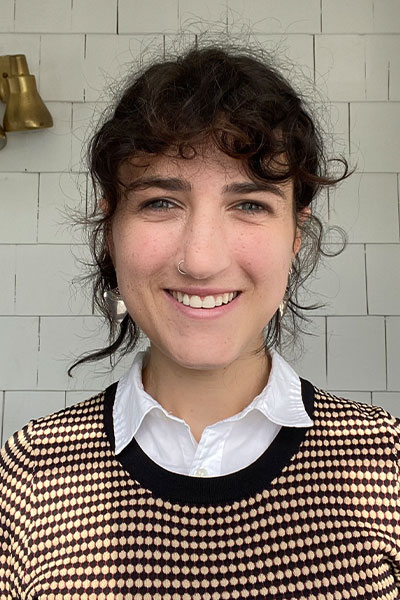
Emma Tyler Rothman
Community Engagement Award
This is awarded to a Food Studies major or minor who demonstrates the ability to create or implement progressive food-based initiatives which engage diverse politics locally, nationally, or internationally.
Emma Rothman began her community engagement journey at the age of 13 with Hearts for Emma. Since then, she has continued pursuit of community engagement. She was the first Engagement Scholar at the Blackstone LaunchPad encouraging students to find ways to create community impact through entrepreneurship. While Emma’s interest in creating positive change in communities extends beyond the scope of food studies but she emphasizes that food is a powerful mechanism for change. Her internship has taken her to Salt City Harvest Farm whose mission is “growing food, culture, and community.” Emma has been the recipient of many past scholarships for her commitment to community engagement and we are proud to recognize her as the Falk College Food Studies Community Engagement recipient this year.

Trinity Benton
Food Studies Culture and Commensality Award
This is awarded is given to the Food Studies major who has expanded the Food Studies program to new audiences by sharing food knowledge and practice through social activism. Trinity is the Kitchen Technician for our culinary programming and earned her undergraduate degree through working and going to college part time. She’s a delight to have around. Always positive and friendly and an excellent student.
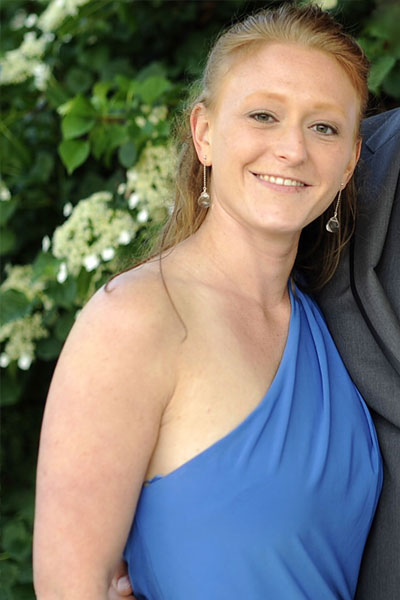
Lisa Bush
Food Studies Research Award
This is awarded to a Food Studies major who produces a research project and paper of exceptional quality. The paper should address substantial issues regarding the sustainability of the food system including food justice, human rights or ecological, economic, and social impacts of food production, consumption, processing and distribution.
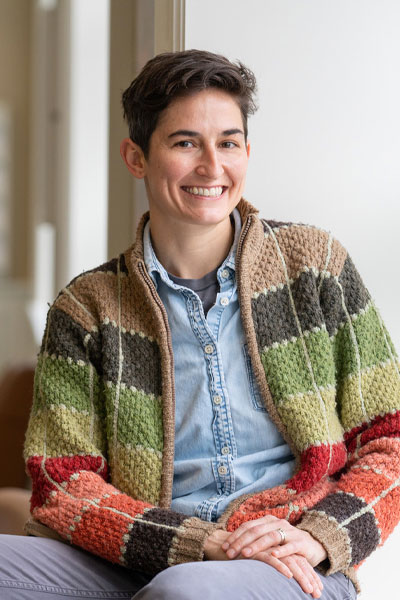
Nel Gaude
Chef’s Prize
This is awarded to a Food Studies graduate who demonstrates exceptional ability in the culinary arts. This ability should also include food justice and community engagement goals of the Food Studies Program. Nel worked in the culinary industry before coming to Food Studies and was a Learning Assistant for our culinary classes. She is committed to helping her community wherever she resides through her work on making the food system more equitable and sustainable.

Sydney M Taylor
Food Justice Award
This is awarded to a Food Studies major or minor who demonstrates the ability to successfully address food justice related issues through a variety of mediums. Sydney’s practicum work at St. Martha’s Center for Rehabilitation and Health Care embodies the essence of this award. She facilitates the running of the food service to keep the residents nourished, full and content.
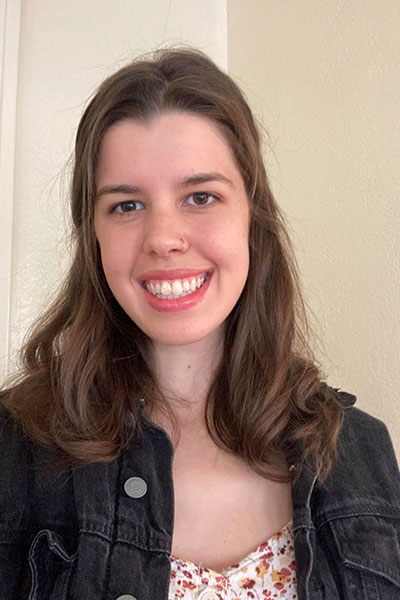
Anna Zoodsma (Graduate)
Roseane do Socorro Gonçalves Viana Human Rights Award
Viana Human Rights Award for the best graduate or undergraduate paper on the human right to food, nutrition, and/or health. Selection to be made by a committee: of two or three; headed by someone other than Anni Bellows from the Food Studies Program. Roseane do Socorro Gonçalves Viana, Brazilian nutritionist and right to adequate food activist and writer, left a powerful message of hope and belief in the essential goodness of each and every person, of the need to take on our individual and collective responsibilities to ensure the welfare and dignity of all and for each and every one, that all struggles are important and must be respected, and, most of all, that the voices of the affected must be heard.
Anna’s paper, “Migration as Recourse: The Human Rights of Migrant Women Across the Americas” received the first-place designation in the Graduate Paper category. Anna’s argument that migration should be understood as an act of human rights recourse is powerful and recognized as a very interesting theoretical contribution.

Emma Tyler Rothman (Undergraduate)
Roseane do Socorro Gonçalves Viana Human Rights Award
Viana Human Rights Award for the best graduate or undergraduate paper on the human right to food, nutrition, and/or health. Selection to be made by a committee: of two or three; headed by someone other than Anni Bellows from the Food Studies Program. Roseane do Socorro Gonçalves Viana, Brazilian nutritionist and right to adequate food activist and writer, left a powerful message of hope and belief in the essential goodness of each and every person, of the need to take on our individual and collective responsibilities to ensure the welfare and dignity of all and for each and every one, that all struggles are important and must be respected, and, most of all, that the voices of the affected must be heard.
Emma’s paper, “The Contradiction Between the Largest Anti-Hunger Program in America and Its Mission of Promoting Food Security Self-Sufficiency Among Recipients” received the first place designation in the Undergraduate Paper category.
Congratulations Class of 2021!
Along with Dean Murphy, the entire Falk College community of students, faculty, staff, alumni, community partners and friends, congratulates the Class of 2021! Over the past several weeks, departments across Falk College honored student achievements and celebrated the graduating Class of 2021, which are detailed on individual department websites.
Graduates and families should visit the main page on the Commencement website on Saturday, May 22 at 11 a.m. EST to view the virtual school and college convocations, including the Falk Convocation, and livestream of all Commencement ceremonies. Recordings of virtual convocations will be posted online so that graduates and their families can view them at a later date.
Details about Syracuse University Commencement weekend, May 22-23 are available, including specific information about safety protocols for those attending in person.
“To the Class of 2021, as the newest Falk alumni, you join an accomplished community of socially responsible citizens who can and who must lead change,” notes Diane Lyden Murphy, dean, Falk College.
We know you will lead the way! Congratulations, and best wishes!
Page 9 of 21
